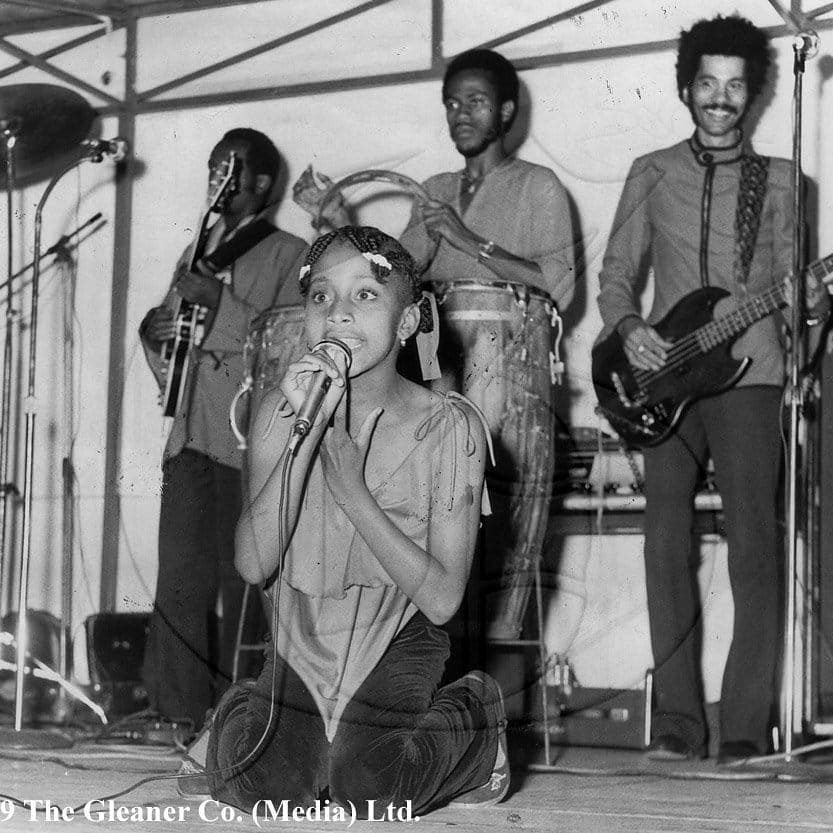
NADINE Sutherland is Jamaica’s most enduring child star.
Ever since she first wowed audience and judges alike as an 11-year-old with a performance of Peter Tosh’s Buckingham Palace at the Tastee Talent Contest in 1979, Sutherland has been charting a course for herself and writing her name in the history of Jamaican music.
It has been over 40 years since that Tastee performance and with each passing decade, the name Nadine Sutherland continues to be echoed in the local and international music space.
Sutherland was born in Kingston and raised in Above Rocks, St Catherine, and following her historic Tastee win she was signed to Bob Marley’s Tuff Gong label. That association led to the release of her first single Starvation, written by long-time Marley collaborator Anthony “Sangie” Davis. This was met with critical acclaim and truly launched the career of the young singer.

A number of hit songs would follow including Hands and Heart, A Young One Like Me, Until, I’m in Love, Anything for You, Baby Face, Pair of Wings, Chatty Chatty, and Wicked Dickie. But none would bring her the fame of Action, her 1993 collaboration with deejay Terror Fabulous, produced by Dave Kelly.
The track was used by the Jamaica Labor Party as their election campaign theme, and in 2007 was included by Vibe at 19 in its list of the 50 greatest duets of all time. In the United States, Action reached number 43 on the Billboard Hot 100.

In late 2016, Sutherland achieved another milestone when she graduated from The University of the West Indies (UWI), Mona campus in Kingston, with a master’s degree in cultural studies.
She noted that she always wanted to go on to tertiary level studies and, in 2012, once she was no longer part of the panel for the talent show Digicel Rising Stars and the desire for tertiary-level education rose again. She heard of the master’s in cultural studies program and gave it a shot.
“I was excited to finally be at UWI, but intimidated at the same time. But I realized I had my life experiences and would use this to my advantage,” she said.
The research paper was the most difficult of her courses. She settled on: ‘Vocal Styles In Jamaica: A Study of Hegemonic Disillusion Displayed In Pop Music Culture And The Role Society Played In Informing Them.’

“Even my supervisor was a little baffled when I came up with this topic. But it is virgin territory; no one has looked at the root of our vocal styles in Jamaica. I had to research areas such as political history, ethnomusicology, cultural theories, Jamaican history as well as listen to a lot of music — from mento to dancehall — which I thoroughly enjoyed,” said Sutherland.

“I am satisfied with my career. As the years pass, value systems change. Now I’m thankful that I’m healthy in every capacity,” she said. “This business can be rough. I’ve experienced the highs and the lows and weathered them with grace, yet I still stand and sleep easily at nights. I wouldn’t change a thing. Every experience was necessary to help in the process of honing my character,” Sutherland told the Jamaica Observer in a previous interview.


You must log in to post a comment.